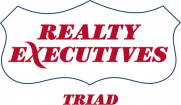Introduction to Real Estate Investment
 This is a general introduction to investing in real estate. It is for the individual considering buying real estate on their own account and doesn’t address group investments such as REIT’s, REIG’s, RELP’s, or REMF’s.
This is a general introduction to investing in real estate. It is for the individual considering buying real estate on their own account and doesn’t address group investments such as REIT’s, REIG’s, RELP’s, or REMF’s.
A truism for investors is, “You make your money when you buy.” The savvy real estate investor enlists the services of an experienced Broker to establish the value of their purchases and to help in making a purchase decision.
Real estate offers one of the lowest risk investments with one of the best returns, returns that can be tailored to provide a one-time payment or an income stream from an appreciating asset.
The successful real estate investor has a plan, a plan based on financing, location/type of property, return on investment, and an end goal.
Financing
Property can be bought using cash or using leverage; paying a portion of its total cost upfront, then paying off the balance over time. A cash purchase is sometimes the only option for auction properties or those that are in poor condition. Regardless of the financing type, having needed monies in place to view and instantly make an offer on a property is the first step to successful investing.
Location/Type
Location is paramount regardless of budget. Purchasing property in the best neighborhoods available in a particular price range offers the most security for real estate investment. Rental or resale, these areas have the most potential for appreciation, higher rents and quicker sales at the best possible price.
The purchase of condos and townhomes can provide some certainty to maintenance costs while single family homes typically offer the opportunity for higher appreciation. The choice of two or more bedrooms, one or more baths, garage spaces, etc. need to be incorporated in the investors overall plan. This evaluation process is where the services of an experienced Broker are invaluable.
Return on Investment
There are many costs associated with the acquisition and end use of real estate. Financing charges, commissions, property management costs, HOA dues, maintenance and vacancy allowances, rehab costs, etcetera, are factors that need to be considered when calculating a return on investment. Collaboration with an experienced Broker can establish a property’s resale or rental value.
Based on these values, the investor can determine the maximum purchase price that will still achieve their financial return goal. Sharing your financial criteria with your Broker will aid in finding those properties that will work for you.
End Goal(s)
An investor has to make a decision whether to build a real estate portfolio of rental properties, purchase properties for resale, or do a combination of both.
Rental Properties, purchased properly, are an appreciating asset that produce a monthly income stream. Hands on investors can manage the properties themselves, taking care of record keeping, rental, and repair chores. Some investors pay for the services of a professional Property Manager to lessen their role to a monthly portfolio review. In either case, having a CPA familiar with rental properties is recommended.
Buying undervalued properties and/or those needing rehabilitation for resale is more involved but can offer higher returns and a finite period of ownership. This type of investing typically demands much more of an investor such as handyman skills, for those properties needing cosmetics, and/or performance as a general contractor for trades to evaluate and perform repairs requiring a permit such as plumbing, electrical or structural work.
The brokers at Realty Executives Triad have the experience to assist an investor in finding suitable properties and to provide guidance in the acquisition of properties that meet the investor’s needs. We look forward to sharing our expertise.
Free Real Estate Investment Information
Interested in more information regarding investing in real estate? Fill out the form below and we will send it along.
